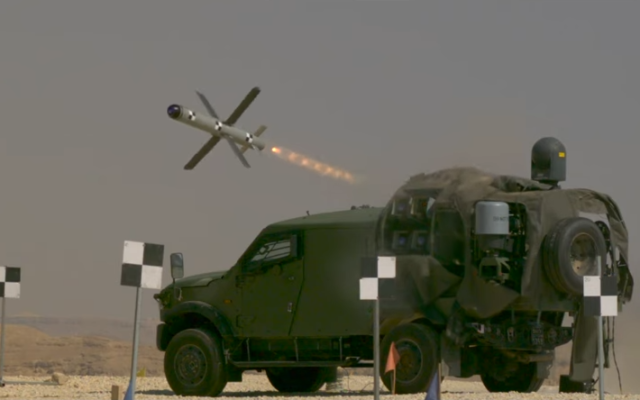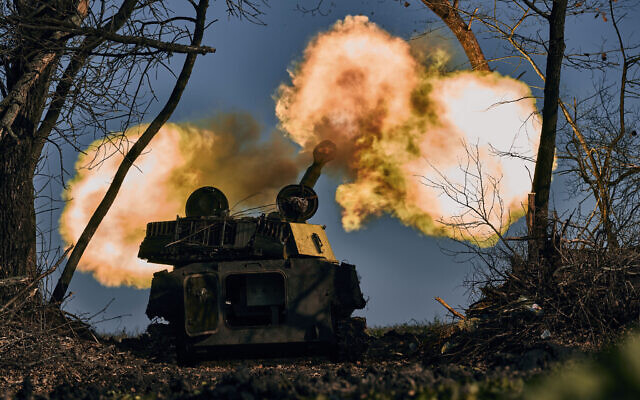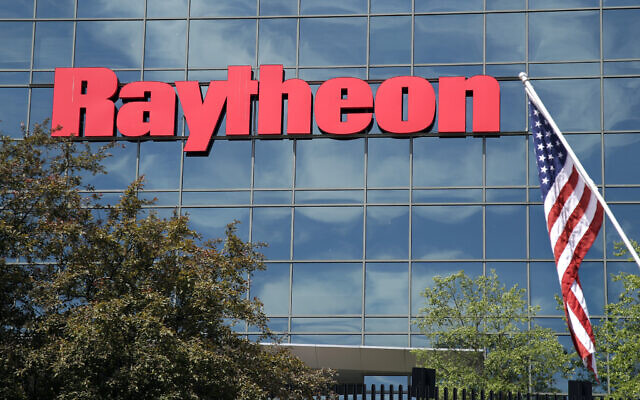Israel’s Elbit Systems was among the world’s top arms manufacturers last year, leading a Middle Eastern region that saw weapons sales grow more than anywhere else in the world, according to research published Monday.
Globally, sales of arms and military services among the world’s top 100 arms companies grew to $592 billion in 2021, according to the latest report from the Stockholm International Peace Research Institute (SIPRI).
The 1.9 percent rise came even as the industry was limited by worldwide supply issues related to the pandemic, with the war in Ukraine increasing demand while worsening supply difficulties.
Sales by Elbit Systems jumped from $4.2 billion in 2020 to $4.75 billion, placing it 28th on the roster of the world’s top 100 arms makers and defense contractors. The ranking was the highest-ever for the company, and the highest for an Israeli defense firm since Israel Aerospace Industries ranked 27th with $1.2 billion in arms sales in 2002, the year SIPRI began publishing its annual ranking.
According to SIPRI, the five companies from the Middle East among the top 100 saw $15 billion in arms sales in 2021, a 6.5% jump over the previous year, a larger increase than any other region. The companies included Israel’s Elbit, IAI ($3.87 billion), and Rafael ($3.01 billion), and Turkey’s ASELSAN ($2.16 billion) and Turkish Aerospace ($1.2 billion).
Get The Times of Israel's Daily Edition by email and never miss our top stories
US-based Lockheed Martin remained the largest arms manufacturer, with over $60 billion in sales.

The sixth-generation Spike NLOS anti-tank missile is seen launched in a test in August 2021. (Rafael Advanced Systems)
Worldwide, however, the growth of arms sales was severely impacted by widespread supply chain issues.
“The lasting impact of the pandemic is really starting to show in arms companies,” Nan Tian, a senior researcher at SIPRI, told AFP.
Disruptions from both labor shortages and difficulties in sourcing raw materials were “slowing down the companies’ ability to produce weapons systems and deliver them on time.
“So what we see really is a potentially slower increase to what many would have expected in arms sales in 2021,” Tian said.
Russia’s invasion of Ukraine is also expected to worsen supply chain issues, in part “because Russia is a major supplier of raw materials used in arms production,” said the report’s authors.
But the war has at the same time increased demand.
“Definitely demand will increase in the coming years,” Tian said.

A self-propelled artillery vehicle fires near Bakhmut, Donetsk region, Ukraine, Wednesday, Nov. 9, 2022. (AP/LIBKOS)
How much it will go up is harder to gauge, Tian said, pointing to two factors that would impact demand.
Firstly, countries that have sent weapons to Ukraine to the tune of hundreds of millions of dollars will be looking to replenish stockpiles.
Secondly, the worsening security environment means “countries are looking to procure more weapons.”
With the supply crunch expected to worsen, it could hamper these efforts, the authors noted.
Companies in the US continue to dominate global arms production, accounting for over half, $299 billion, of global sales and 40 of the top companies.
At the same time, the region was the only one to see a drop in sales: 0.9 percent down on the 2020 figures.
Among the top five companies — Lockheed Martin, Raytheon Technologies, Boeing, Northrop Grumman and General Dynamics — only Raytheon recorded an increase in sales.

An American flag flies in front of the facade of Raytheon’s Integrated Defense Systems facility, in Woburn, Mass, on June 10, 2019. (AP Photo/Elise Amendola, File)
Meanwhile, sales from the eight largest Chinese arms companies rose 6.3% to $109 billion in 2021.
European companies took 27 of the spots on the top 100, with combined sales of $123 billion, up 4.2% compared to 2020.
The report also noted a trend of private equity firms buying up arms companies, something the authors said had become increasingly apparent over the last three or four years.
This trend threatens to make the arms industry more opaque and therefore harder to track, Tian said, “because private equity firms will buy these companies and then essentially not produce any more financial records.”


